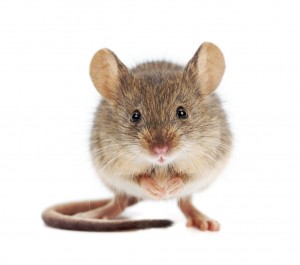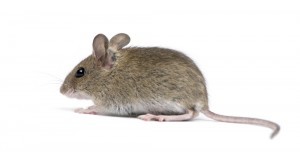Mice
 Mice, like rats, are a very successful mammal species and very adept at living with humans. They are not particularly fussy eaters, can breed prolifically and are clever at concealing themselves in a variety of places in a home. Also like rats, mice can cause harm to humans in the form of disease transfer and whilst not as damaging to property as rats can be, mice can be smelly and their presence, particularly in numbers, can be an abhorrence.
Mice, like rats, are a very successful mammal species and very adept at living with humans. They are not particularly fussy eaters, can breed prolifically and are clever at concealing themselves in a variety of places in a home. Also like rats, mice can cause harm to humans in the form of disease transfer and whilst not as damaging to property as rats can be, mice can be smelly and their presence, particularly in numbers, can be an abhorrence.
TYPES OF MICE
In Western Australia we are mainly concerned with 2 varieties of mouse – the Field Mouse and the House Mouse. The Field Mouse is mostly seen in agricultural areas where they eat seed crops and can hence cause major problems for farmers particularly if their numbers reach plague proportions. The Field Mouse has a body length of approximately 80 – 100mm with a slightly shorter tail. Its colour tends to be of an orange / brown appearance with yellowish streaks on its flank and chest. Control and monitoring of mouse activity in rural areas is vitally important and to this end the CSIRO and partners have developed a “MouseAlert” website for grain growers and landowners to record and view mouse activity in their area and this website can be found here:
http://www.feralscan.org.au/mousealert/pagecontent.aspx?page=mouse_aboutmousealert
 The House Mouse is a slightly smaller rodent with a tail length the same as that of its body. Its colour tends to be brownish – grey above and white to grey or pale yellow below. In a domestic situation, there may exist some confusion between a small brown rat and a house mouse, but a house mouse differs noticeably from the brown rat in that has markedly smaller feet and large ears and eyes. House mice are active all year round in a home and their diet predominantly consists of food scraps such as breadcrumbs.
The House Mouse is a slightly smaller rodent with a tail length the same as that of its body. Its colour tends to be brownish – grey above and white to grey or pale yellow below. In a domestic situation, there may exist some confusion between a small brown rat and a house mouse, but a house mouse differs noticeably from the brown rat in that has markedly smaller feet and large ears and eyes. House mice are active all year round in a home and their diet predominantly consists of food scraps such as breadcrumbs.
SIGNS OF MOUSE ACTIVITY
Apart from the obvious visual sign of the presence of mice in your home, there are a few other notable things to confirm mice presence:
• Droppings – tend to be small (3 – 8mm in length) and will scattered around randomly. Rat droppings, by the way, will be larger (10 – 15mm in length).
• Noise – at night, when mice are most active, small scratching noises may be heard in wall cavities, on floorboards, around kitchen areas etc.
• Smell – urine from mice tends to have a strong ammonia like smell. Mice tend to urinate quite frequently and the smell may be around their main site of activity particularly in enclosed spaces.
CONTROL OF MICE IN WESTERN AUSTRALIA
Perth Pest Control have had many years of experience both in the identification of mouse activity and the subsequent elimination of mice in homes and businesses. We can even advise you on ‘rodent-proofing’ your premises to minimise the chances of any future mouse activity.
The methods we employ to eliminate your mouse problem are:
• Baiting – using tried and tested baits to eliminate a colony. There is not necessarily a “one size fits all’ bait that we use. Sometimes we must be aware of ambient bait “competition” so the mice will be attracted to our bait and knowing this is something that we, at Perth Pest Control, are very experienced at and will survey onsite.
• Trapping – this method is not commonly used except in situations where baiting is not possible and we can advise on the suitability of this method.
In metropolitan Perth, the House Mouse is the cause of most concern for our residential and business customers however we are also very experienced in the elimination of Field Mice in rural areas and if you would like further information about rodent control on your premises, please contact us.
FAQ – Mice
You can but there are a number of factors which may stop this from working. These may include contamination of the poison when placing it, or poison competition may not make the store bought bait very attractive to a mouse. Perth Pest Control have learnt the movement and feeding habits of mice and use state of the art rodent poisons laid strategically to make sure our mouse elimination strategy works quickly and efficiently.
No. The bait we use to kill mice has no secondary effect meaning if the cat or dog ate the mouse, they won’t get effected. Store bought baits may seem like a cheap option but they may have secondary effects on pets.
Firstly, some factors may be out of your control. It may be recent nearby constructions have brought mice back to the area. It could be that seemingly harmless activities by your neighbours such as introducing chickens or breeding pigeons has attracted mice. What needs to be considered by you is a detailed proofing plan or you home or business. This involves sealing up all possible entry points and Perth Pest Control can advise on this.




